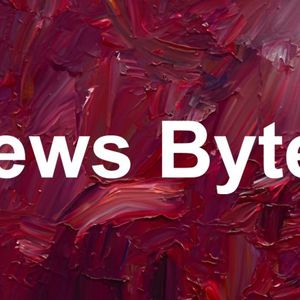

Investors Won Big In Grayscale Bitcoin Trust: Now Switch To IBIT For 90% Lower Fees
Summary After the SEC approved US spot Bitcoin ETFs in January, the iShares Bitcoin ETF gathered the most assets of the newly approved funds. The Grayscale Bitcoin Trust also quickly erased its discount to net asset value shortly after the ETF conversion, cementing a huge win for patient investors who bought at a discount. GBTC still has ~$21 billion in assets despite charging 1.5% annually, while the ~$4 billion iShares Bitcoin Trust ETF charges 0.12%, making IBIT a much better deal for investors. Investors may be simply complacent in leaving their money in GBTC or may be overestimating the benefits of tax deferral in some cases. The iShares Bitcoin ETF is likely to be a clear winner going forward relative to GBTC. Last month, the SEC approved the conversion of a slew of spot Bitcoin ETFs, forever changing the crypto landscape. The move gave millions of investors an easy and secure way to invest in Bitcoin and unlocked billions of dollars in dead money in the Grayscale Bitcoin Trust (GBTC). Now the crypto world is fired up ahead of this year's highly anticipated Bitcoin halving . Bitcoin ( BTC-USD ) itself has since surged to nearly $50,000. January's SEC ruling simultaneously approved 11 spot Bitcoin ETFs. As expected, the iShares Bitcoin Trust ETF (IBIT) has gathered the most assets of the new funds, followed by Fidelity Wise Origin Bitcoin Fund ETF (FBTC). GBTC quickly erased its discount to net asset value after the ETF conversion, with the fund now trading a mere 0.02% from net asset value. This was a huge trade in the crypto and merger arbitrage worlds- GBTC at one point traded at an over 50% discount to the value of its assets when it was still a closed-end fund! Some brave investors were able to buy a dollar in Bitcoin for 50 cents investment in GBTC when that happened. But now, circumstances have changed so that GBTC is no longer the best way to invest in Bitcoin. Data by YCharts GBTC is still the top dog in the Bitcoin space with roughly $21 billion in assets and the incumbent advantage. But two other funds (iShares and Fidelity) have quickly proven that they're going to have deep liquidity and 80-90% lower fees than Grayscale. Some funds that are seeing less investor interest include the new ARK Bitcoin fund (ARKB) and Invesco's Bitcoin Fund (BTCO). By comparison, WisdomTree's Bitcoin fund (BTCW) flopped with only $18 million or so in assets gathered. Bitcoin ETFs AUM (ETF Database) Some Quick Math On The Current Bitcoin ETF Situation Grayscale still charges 1.5% annually, and it's still by far the leader in assets one month after launch. These are practically hedge fund fees. IBIT is only charging 0.12% , in line with what you'd expect for S&P 500 index funds and the like. Fidelity is waiving fees entirely to start. Fee waivers and whether funds are charging 0.12% or 0.25% are important, but they're minutiae compared to the 1.5% that GBTC is charging. Competition should continue to bring fees down in the crypto ETF space. I'd expect iShares and Fidelity to extend their fee waivers or make them permanent, but as long as Grayscale has a comparatively high asset base they'll feel little pressure to compete. My bet is that the iShares fund will be the most liquid over time and will be able to support the lowest level of fees. I can't say I blame GBTC here for not cutting its fees- if investors are too complacent to move funds, then GBTC deserves to profit. No one is being forced to pay the $300 million in fees that GBTC is earning on the fund! What could offset $300 million per year in extra fees? Capital gains taxes, perhaps. I'll concede that investors in GBTC who have short-term capital gains are better off waiting until the gains go long-term before switching Bitcoin funds. However, one thing that sophisticated advisors have found over time is that the investor population overestimates the true value of tax deferral. When you run the proper calculations in Microsoft Excel or similar software, the value of tax deferral is quite low once you go past the 1 year long-term capital gains threshold. A 1.4% annual difference in fees is likely to swamp any tax benefits that holding Grayscale might have because in Grayscale taxes not avoided, merely deferred. Even if you don't sell, you're going to have to pay the capital gains taxes eventually on GBTC. As a rule of thumb, tax deferral is worth about 10-30 bps annually once you get past the long-term capital gains threshold. And deferral is worth zero if the investment goes down. Deferral math commonly assumes investors are in the top tax bracket. But if you're not, the value of deferral is much lower. To be fair, the value of deferring goes up the higher your returns are, but you always have the option of paying your taxes and allocating outside money to Bitcoin if you think it's going to skyrocket. Then you'll get a 1.4% per year increase in your returns. Conclusion If you're looking to invest fresh money in Bitcoin, IBIT is a much better deal than GBTC as it tracks an identical index but costs 0.12% annually vs. 1.5% annually. If you're part of the $21 billion in AUM still in GBTC, you're not trapped into paying higher fees forever to avoid paying capital gains tax. I'm not a financial advisor- I'm certainly not your financial advisor. However, it's been proven with simple math that investors making conscious decisions to stay in high-fee funds to avoid paying taxes are sabotaging their returns. And there seems to be a lot of that going on in GBTC, with iShares and Fidelity only picking up about $7 billion in AUM between them when rational investors would likely shift more money quicker. I think you should go with IBIT here, though I think the Fidelity fund is a perfectly reasonable choice as well.











